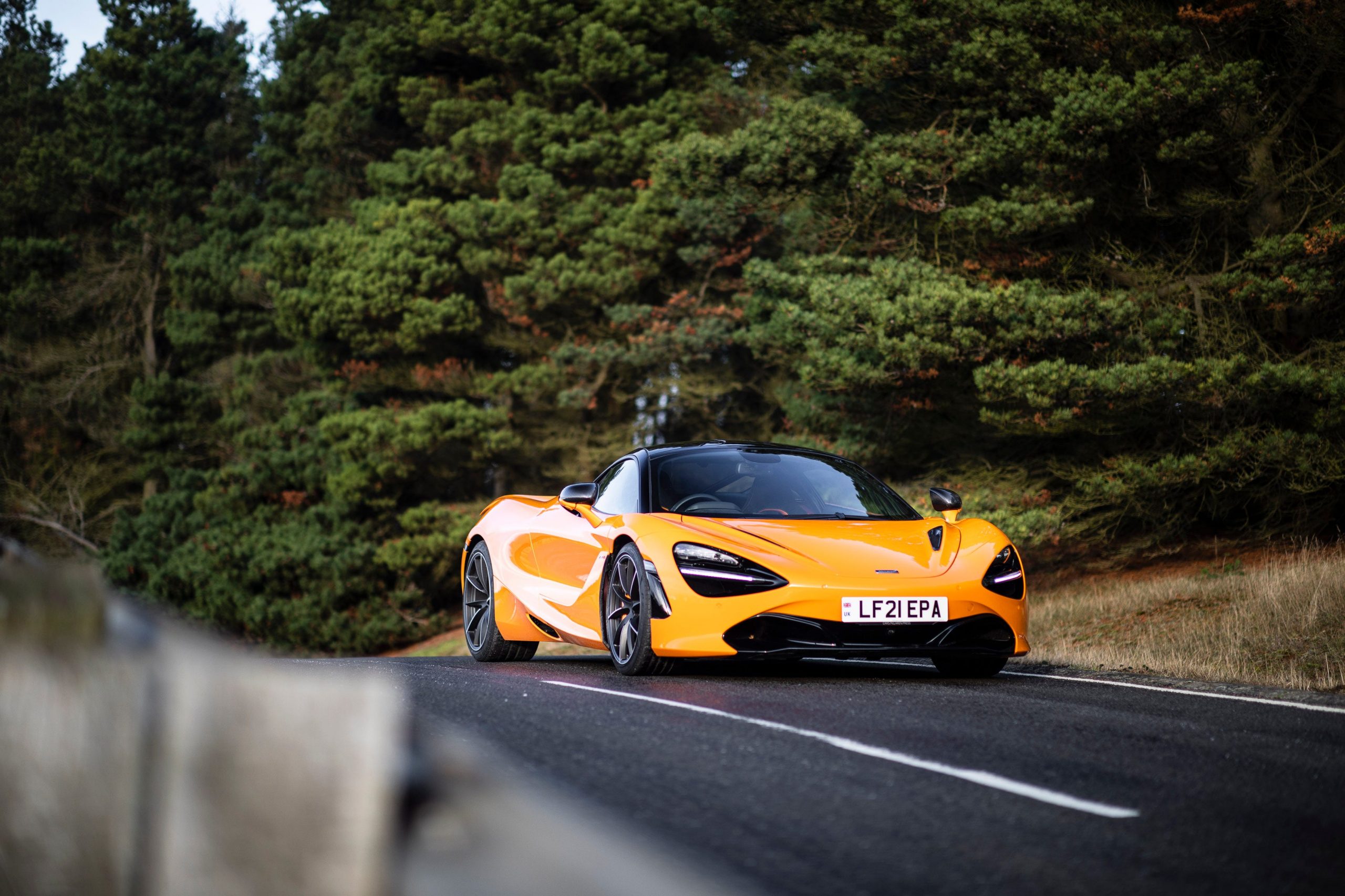
- The McLaren 720S is a 710-horsepower supercar that's far from subtle — and that's the whole point.
- We recently drove the car at Millbrook Proving Ground, a test track in the UK.
- The experience proved what you could probably guess: The 720S handles triple-digit speeds just as well as it does store runs.
McLaren's 720S is neither slow nor subtle. Packing a twin-turbo 4.0-liter V8 with 710 horsepower and 568 pound-feet of torque, it'll hit 60 mph from nothing in less than three seconds and sail past 210 mph. It'll do all of this noisily thanks to sonorous tailpipes, which are designed to let everyone know that you're in something special.
When it was released in 2017, the 720S's looks were a point of contention. Rather than traditional headlights, it has sunken air vents for better cooling and airflow, lending it an alien look that makes it stand out to this day. It's long, wide, and comes with a glass-coated cockpit that gives a near 360-degree view. It's a car that'll excite every sense — bar taste, unless you like licking carbon fiber — and set ludicrous lap times wherever it goes.

You're more likely to see a 720S on the street than the track, but since 720 horsepower can't do much good there, McLaren invited me to see what the 720S can truly do at the UK's Millbrook Proving Ground — a facility that's usually shrouded in secrecy, as manufacturers often use it to test top-secret new models.
Drama is at the heart of the 720S. The doors open "up" rather than out, the cockpit is covered in swoopy but not needless design details, and bright buttons have exciting words like "active" on them. The view up front is clear, the wing mirrors show off the car's wonderful bodywork, and the rear is pure sculpture.
Jab the "engine start" button and the 720S's 4.0-liter motor growls at you. Goading you to let it sing. So I did.

Rain decided to get in the way. No matter how many traction toys you have on board, if you have a light car with more than 700 horsepower and low grip, things can get skiddy. Thankfully, McLaren paired me up with professional driver Warren Hughes. Hughes has raced everything, and he knew the car inside out.
Advising a gentle start, Hughes warned that in slippery conditions, the 720S can get a little fighty. With the car in its most inert settings, I made sure we were in a straight line and put my foot down.

At half throttle, the acceleration was beguiling. Somehow, it just kept going faster and faster, causing the double chin hidden under my beard to slide down my neck. As we neared 100 mph, I pulled its wheel-mounted shift paddle to engage fourth gear. That's when the rear wheels decided they'd had enough of gripping the soggy road and lurched the car sideways.
Thanks to the various bits of software designed to keep over-enthusiastic morons safe, the car righted itself and we kept going on, and on, up to 120 mph. It's at this point when Hughes told me to do an emergency stop to see how the 720S's carbon brakes fared in the wet.
I gave it what I thought was my all, my hidden chin forcing its way to my eyes, and we stopped straight and true. Hughes, politely, told me there was more in the brakes to play with and to give it some extra gas next time.

Next time was immediately — this time in the car's Sport mode, which upped the aggression in the powertrain and let the 710 horses gallop faster. Again, I set off relatively gently, and again, the speedometer filled with large numbers very quickly. With each violent gear shift, the car felt quicker.
When it came time to stop, I did my best to thrust my right leg through the floor. All the blood in my face rushed from my ears to the tip of my nose. Hughes was right, there was more in the brakes. Much more.
The next stop on the 720S adventure was Millbrook Proving Grounds' famous "Hill Route." It comes with steep climbs, dips, off-camber roads, lumps, bumps, and everything you could reasonably throw at a car. You've almost certainly seen it in TV and movies, too — most notably, it's where James Bond flipped his Aston Martin DBS in "Casino Royale."

The idea here was to experience the car's balance, handling, and steering feel. The first thing you'll notice when you go round a bend in a 720S is how light its steering is. No matter how big and shouty its motor is, simply getting around is easy.
You can also feel every millimeter of movement through it. Every tiny adjustment I made, I felt it through the front wheels. Pressing on over rough terrain, while the cabin filled with roar from nasty road surfaces, the car remained planted and, strangely for a supercar, comfortable.
McLaren's ride technology has always been top notch, touting the stiffness required for fast, flat cornering, but leaving the harshness you'd normally associate with big wheels and sport suspension behind. It'll do that at triple-digit speeds just as happily as it'll do it trundling to the store for milk.
Though if you have a McLaren 720S, take it to the track from time to time. You'll appreciate it all the more.
